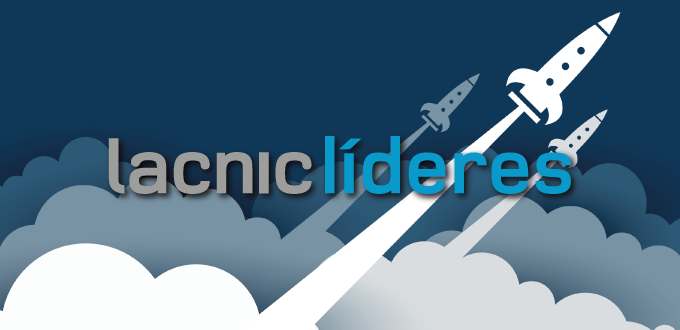Promoting Regional Referents in Internet Governance
03/07/2023

By Paula Oteguy, Multi-stakeholder Engagement Coordinator
In order to contribute to Internet development in the region, LACNIC offers different opportunities for support and participation.
On this occasion, I would like to address the LACNIC’s Líderes program, an initiative that provides financial support and mentoring to candidates to develop research that offers detailed knowledge on the impact of Internet Governance from a unique perspective, as perceived by their communities. If you are currently involved in Internet Governance or would like to work on this field, I encourage you to keep reading.
The fourth edition of the call aims to continue supporting the work of underrepresented communities, amplify local voices, provide a space for peer-to-peer exchange and continue building a valuable repository of information on Internet Governance issues accessible to the entire regional community.
The current edition comprises five thematic axes:
1. Internet for all: Inclusion and impact on human rights.
2. Cybersecurity and cybercrime.
3. Risks of Internet fragmentation.
4. Models of public policymaking for the Internet.
5. Artificial intelligence and emerging technologies. Two of them are new, as each year we review and evaluate topics of discussion from a global, regional and local level, and then define these axes based on the main interests of national or local communities.
This year, we will support 12 candidates who conduct their research projects. Each candidate will receive financial support in the amount of USD 1,500, as well as mentoring for a period of 3 months from recognized figures at regional and global level, who will guide the candidates the candidates throughout the research process.
(Free access, no subscription required)
We will be joined by Raquel Gatto (Brazil), Julian Casasbuenas (Colombia), Alejandra Erramuspe (Uruguay) and Claire Craig (Trinidad and Tobago) as mentors, who will be in charge of selecting the winners with the support of members of the LACNIC team.
This marks our fourth year of supporting researchers. During this period, we have received a total of 132 applications from 14 countries within the region and have supported 48 research projects with the most diverse profiles.
One aspect to highlight is the relationship that is built both during the program and afterwards. Many of the researchers expand their work in different ways. For example, some of them have submitted their work to LACNIC’s FRIDA program, while others have carried out specific actions within their communities, such as promoting dialogues on local Internet Governance initiatives. They also participate in different activities and events in the region and are often included as valuable contributors to the agendas. Following their participation in the program, there are emerging opportunities where they can continue exploring the Internet ecosystem through programs such as ICANN Fellowship and others. Through the Líderes program, participants have planted the seed to develop further research, either individually or collectively, and it has allowed us to build a very interesting group of regional references on Internet Governance over the years.
The views expressed by the authors of this blog are their own and do not necessarily reflect the views of LACNIC.